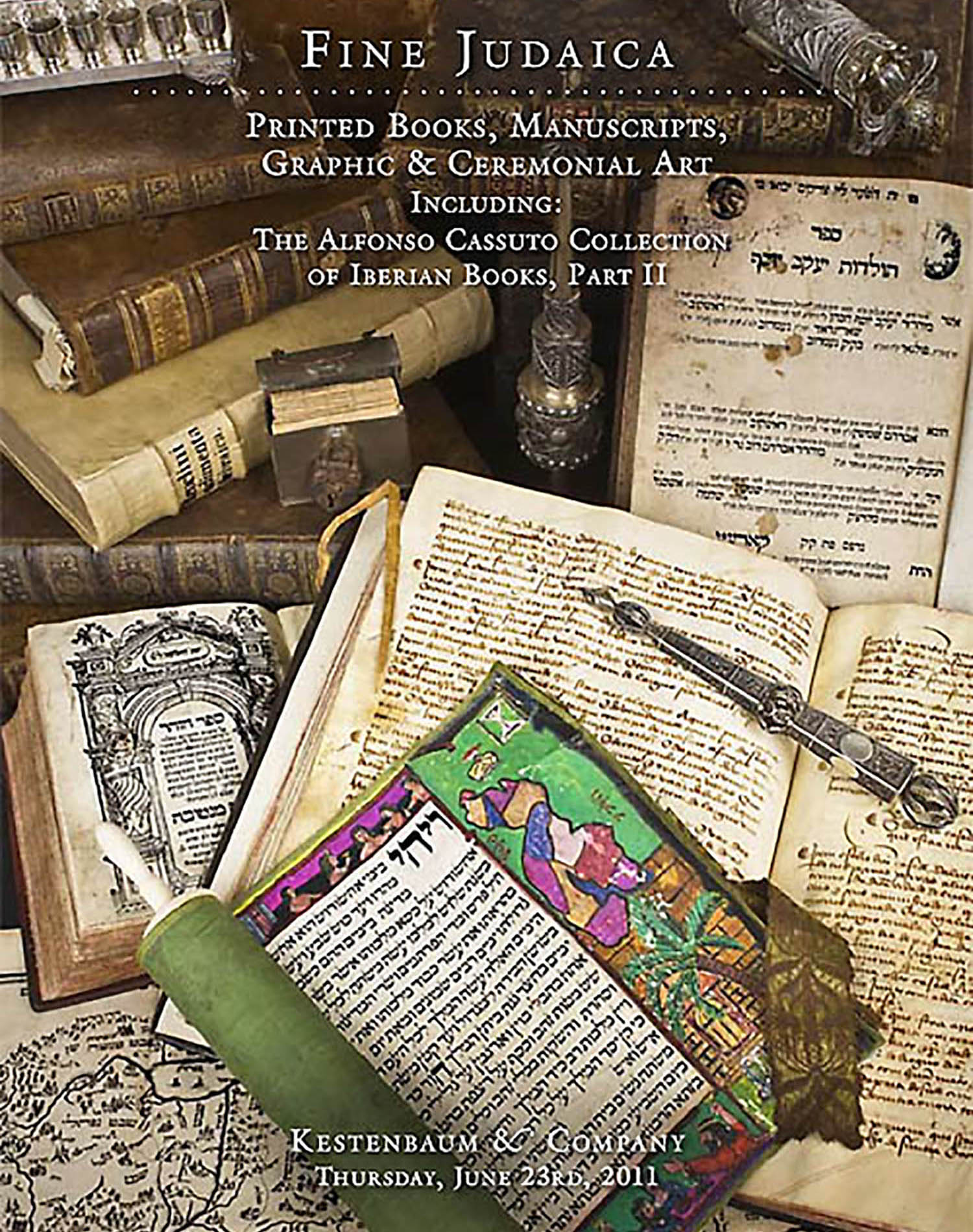Jerusalem Talmud: Masecheth Bikurim. With commentary “Harel” by Abraham Eliezer Alperstein

AUCTION 51 |
Thursday, June 23rd,
2011 at 1:00
Fine Judaica: Printed Books, Manuscripts Graphic & Ceremonial Art Including: The Alfonso Cassuto Collection of Iberian Books, Part II
Lot 86
(AMERICAN JUDAICA)
Jerusalem Talmud: Masecheth Bikurim. With commentary “Harel” by Abraham Eliezer Alperstein
Chicago: Rosenberg Bros. 1890
Est: $1,200 - $1,500
PRICE REALIZED $1,200
The text of Tractate Bikurim is surrounded in this volume by three commentaries, all prepared by Alperstein. The work includes endorsements by R. Joseph Dov-Baer Halevi Soloveitchik of Brisk and R. Jacob Joseph of New York. The first edition published in 1887, was the first volume of the Talmud to be issued in America, the production of which "compares favorably with the finest European typography." See A.J. Karp, From the Ends of the Earth, p. 318.
Abraham Eliezer Alperstein (1853-1917) served the rabbinate in a number of Lithuanian communities, including Slabodka, before emigrating to the United States in 1881. First in Chicago, he relocated to New York, where he was appointed the first Rosh Yeshiva of the newly founded Rabbi Isaac Elchanan Theological Seminary - the nascent Yeshiva University.
In the first edition introduction of Alperstein's Talmud he extolled the virtues of the members of his congregation in Chicago, however in this edition, he rewrote the introduction and referred to his congregants as "tumultous wild boars" a reflection of America as a whole - an "Ama Reika" (an empty nation). See M.A. Gutstein, A Priceless Heritage: The Epic Growth of 19th Century Chicago Jewry (1953), pp. 128-9; and Moshe Sherman, Orthodox Judaism in America, pp. 18-20.
